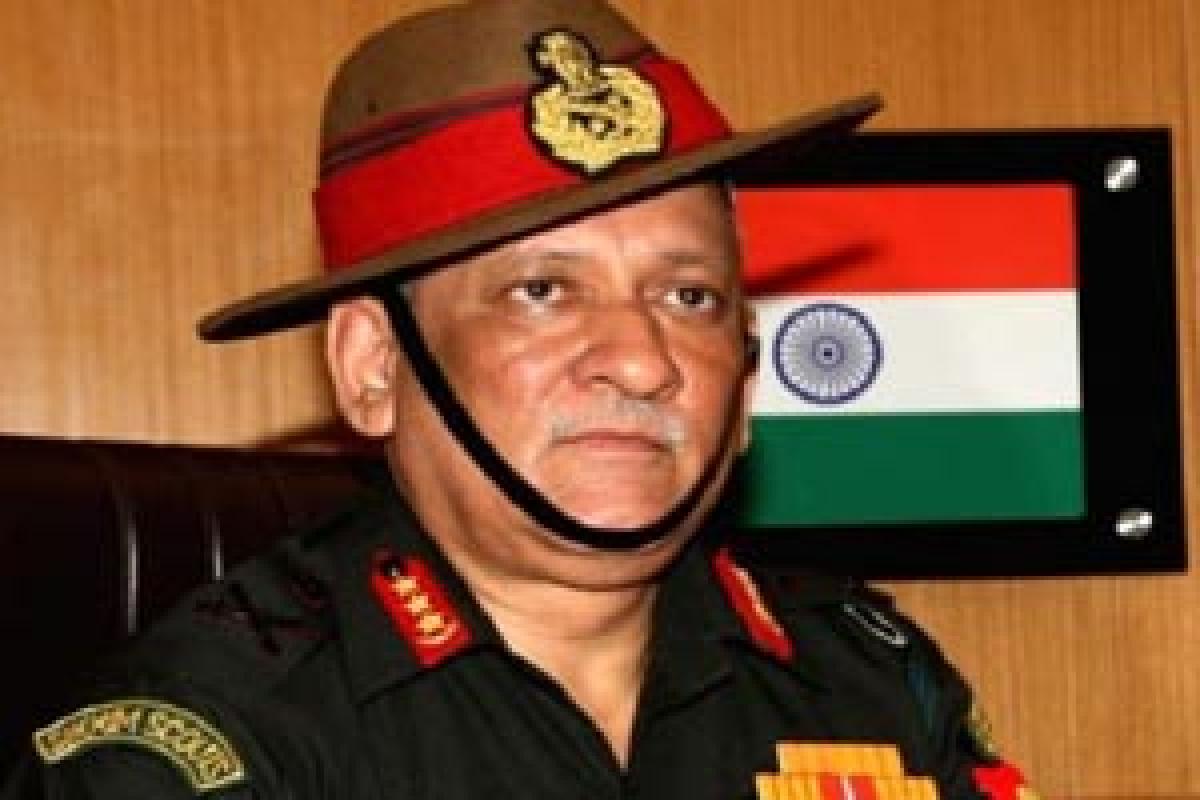Live
- Targeting gut cells may open new way to reduce depression & anxiety
- ‘Daaku Maharaaj’ to kickstart musical promotions
- ‘Game Changer’ team teases with a new promo
- Nara Lokesh emphasises overhaul of govt. schools and mid-day meal program
- Amid turmoil, air pollution peaks in Bangladesh as temperatures fall
- Google Trends unveils list of most searched ‘Indian Movies of 2024’
- BGT 2024-25: Hazlewood signals readiness for Brisbane Test after training with full run-up
- Google Presents Deep Research AI Tool for Comprehensive Web Reports
- Share of top 50 stocks to total market cap at all-time low: Report
- Nortje ruled out of SA’s remaining white-ball matches against Pakistan
Just In

There is no doubt whatsoever that choosing the Indian Army Chief, or any other service chief, is the prerogative of the government.
There is no doubt whatsoever that choosing the Indian Army Chief, or any other service chief, is the prerogative of the government. Then why so much of a hue and cry over the selection of Lt. Gen. Bipin Rawat as the next army chief? Over three decades ago, in 1983, when Lt Gen AS Vaidya superseded Lt Gen S K Sinha, there was an uproar but not as much, in fact nowhere near now, anger amongst both the serving senior officers and military veterans cutting across all arms and services.
Despite the fact that today the electronic and social media call the shots, the number of articles, editorials and letters to the editor that are commenting on the controversy are much more than in 1983. It was, perhaps due to the fact Gen Vaidya, twice awarded the Mahavir Chakra – in 1965 and 1971 had much greater battle experience than Lt Gen. Sinha, who only held staff appointments in the wars of 1947-48, 1962, 1965 and 1971. The supersession was fully justified.
Since I was commissioned in Gen Vaidya's cavalry regiment, the Deccan Horse, my view may seem biased to some military veterans. But there is no doubt that Gen. Vaidya was an iconic figure of the Indian Army, especially the armoured corps, the arm to which the superseded Lt Gen. Praveen Bakshi belongs. Ultimately, Gen Vaidya, India's most decorated soldier, made the supreme sacrifice, like Indira Gandhi and Sant Longowal, for ensuring that India's sword arm is not cut off from the rest of the country.
But as the supersession raised a controversy which was not in the interest of the army, it was decided during the premiership of India's youngest Prime Minister, Rajiv Gandhi, that amongst the vice chief and the army commanders, the seniormost would be elevated. Gen Vaidya's successor, Gen K Sundarji, and all the successive chiefs thereafter have been selected by both the Congress and non-Congress governments on the basis of seniority.
The biggest advantage of following this principle is that nobody can accuse the government of the day of politicising the defence forces or indulging in favouritism. Unfortunately, the choice of Lt Gen Bipin Rawat, no doubt an outstanding officer, on the eve of Uttrakhand elections has raised eyebrows and led to an avoidable controversy.
The only option before the government is to make Lt Gen Praveen Bakshi the CDS, or Chairman of the Chiefs of Staff Committee (CSC) and similarly accommodate Lt Gen PM Hariz in an advisory role where he will not be junior to Gen Rawat (on his elevation). Nobody will be happier with this arrangement than Gen Rawat. This will be in the best interest of both the army and the nation.
The army should be kept totally apolitical and secular. Otherwise there will be no difference between the armies of India and Pakistan, where supersession is never surprising and has become an established norm. (Praveen Davar, an ex-Armoured Corps officer, is Member, National Commission for Minorities)
By Praveen Davar

© 2024 Hyderabad Media House Limited/The Hans India. All rights reserved. Powered by hocalwire.com







